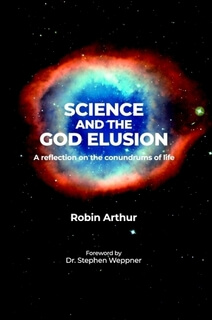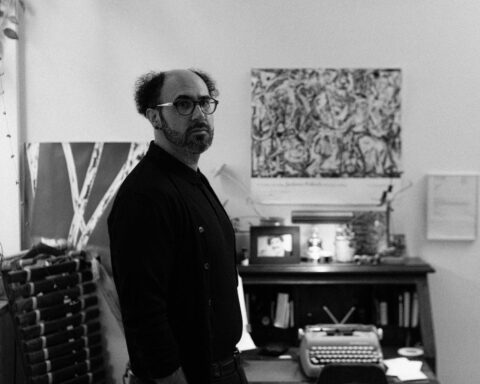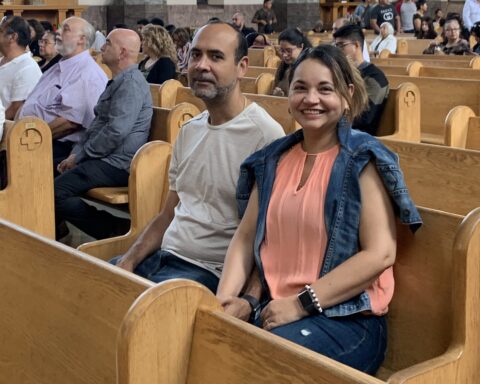If life began in a primordial ocean with organisms evolving from elemental atoms which, instructed by a self-creating universe of natural laws, suddenly flashed into living tissues, why would human life be sacred at all? If any credence is to be given to this serendipity in an evolution theory that does not accept a first cause, why would we call the destruction of human life abominable?
So, it’s just as well that Charles Darwin, in his influential book “Origin of Species”, deducting from the commonality in all living things evidenced in their chemical composition, cellular structure and their laws of growth and reproduction, proposed that all organic beings would have descended from some primordial form into which life was first breathed. In admitting to that truth, Darwin acknowledged the first cause. But that, of course, did not halt the scientific pursuit for an answer to how did the universe originate? Or how and when did life begin?
The progress of science may have riveted man’s understanding of the universe and opened up a new curiosity about how we all came to be. But do we know, for example, how self-replicating organisms came about? How do the atoms of carbon or hydrogen floating in our heads, think up an algorithm? What caused life? Is the Big Bang truly what we thought it was? Can we truly say we know?
Ever-Expanding Intellect
Grappling with these issues, I was compelled to join the conversation, and so I released “Science and the God Elusion”. This book presents compelling arguments about the mysteries of the universe that science cannot unravel as yet. Sir Fred Hoyle, an English astronomer who rejected the Big Bang theory observed, “The notion that the operating program of a living cell could be arrived at by chance in a primordial organic soup here on the Earth is evidently nonsense of a high order.” He proposed instead, that “a super-intellect had monkeyed with physics, as well as with chemistry and biology, and that there are no blind forces worth speaking about in nature.”
In a new book “Know This”, edited by John Brockman, Paul J. Steinhardt, theoretical physicist and director at the Princeton Center for Theoretical Science contends, “The Big Bang cannot be what we thought it was.”
Rudy Brucker, mathematician and computer scientist, affirms that many cosmologists now think our spatial universe is infinite. “Thirty years ago, it was widely believed that our spatial universe is the finite 3D hypersurface of a 4D hypersphere – analogous to the finite 2D surface of a 3D sphere.” In his conclusion, he writes, “Well as far as I can see, we’re living in one of those times when cosmologists have no clear idea of what’s going on. They don’t understand the start of the cosmos, nor cosmic inflation, nor dark energy, nor dark matter. You might say they don’t know jack.”
Exploring Life’s Great Mystery
“Science and the God Elusion” is also a riposte to arguments from atheists who denigrate religion as evil. In defence of moral law, I argue that morality cannot be inspired by social consciousness but is, in fact, God-driven. “Social organization cannot erase the guilt in you because the state’s criteria of right and wrong is built not on a morality principle but on social and political responsibility. That was the distinction that separated State and Church. So, despite the fact that secular laws of the state may deem no wrong on your part in the exercise of your right to choose, the truth will torment you. It’s that third eye of the heart that troubles you.”
The book addresses the conundrums of life, seeking answers to why a loving God would allow suffering and death. It reaches out to those who despair of the shortcomings of their religious institutions. The book presents insights from last century’s eminent scientists, Albert Einstein and Fred Hoyle. It also includes today’s theist scientists including Francis Collins and Gerald Schroeder. Philosophers and mystics of the calibre of Thomas Merton; theologians Billy Graham, John Cornwell and eminent men of letters C. S. Lewis; and agnostics like Kurt Vonnegut. All of them provide a scholarly dimension to questions about the moral law and insights into theology. But “Science and the God Elusion” opens new insights into the God that eludes scientific investigation and presents His wonder through mystical realms.
Concluding Thoughts
“Mysticism is that spiritual conduit through which man reaches out to God and seeks answers to the most profound questions that have needled man and eluded science: How and why am I on this planet and where do I go from here?”
The book invites everyone with a curiosity about what science has revealed to examine the mysteries of the universe.
Of course, religion and science are two different and complementary avenues to knowledge and truth. Dr. Joseph Prabhu, professor of philosophy and theology at California State University in Los Angeles, wrote this book’s back-cover blurb. “It is to Robin Arthur’s great credit that he sees and illustrates this important insight with great charm and in fine detail. This intelligent and wise book demonstrates that the so-called conflict between science and religion is fundamentally misconceived. Seen in their proper complementarity they jointly illumine life’s mystery and many conundrums,” he wrote.
Copies of the book can be ordered on Lulu.com, Barnes & Noble and it can be ordered via Amazon.
Robin Arthur is a newspaper editor, columnist and author of several books including "Can the Poor Inherit the Earth", an opinion on Third World development paradigms, acclaimed by UNICEF and UNDP. In Canada, he has worked to develop an appreciation for interfaith dialogue and from 2011 to 2016 has staged three very successful spiritual diversity conferences that paved the way for the formation of an Interfaith council in the city of Halifax.




